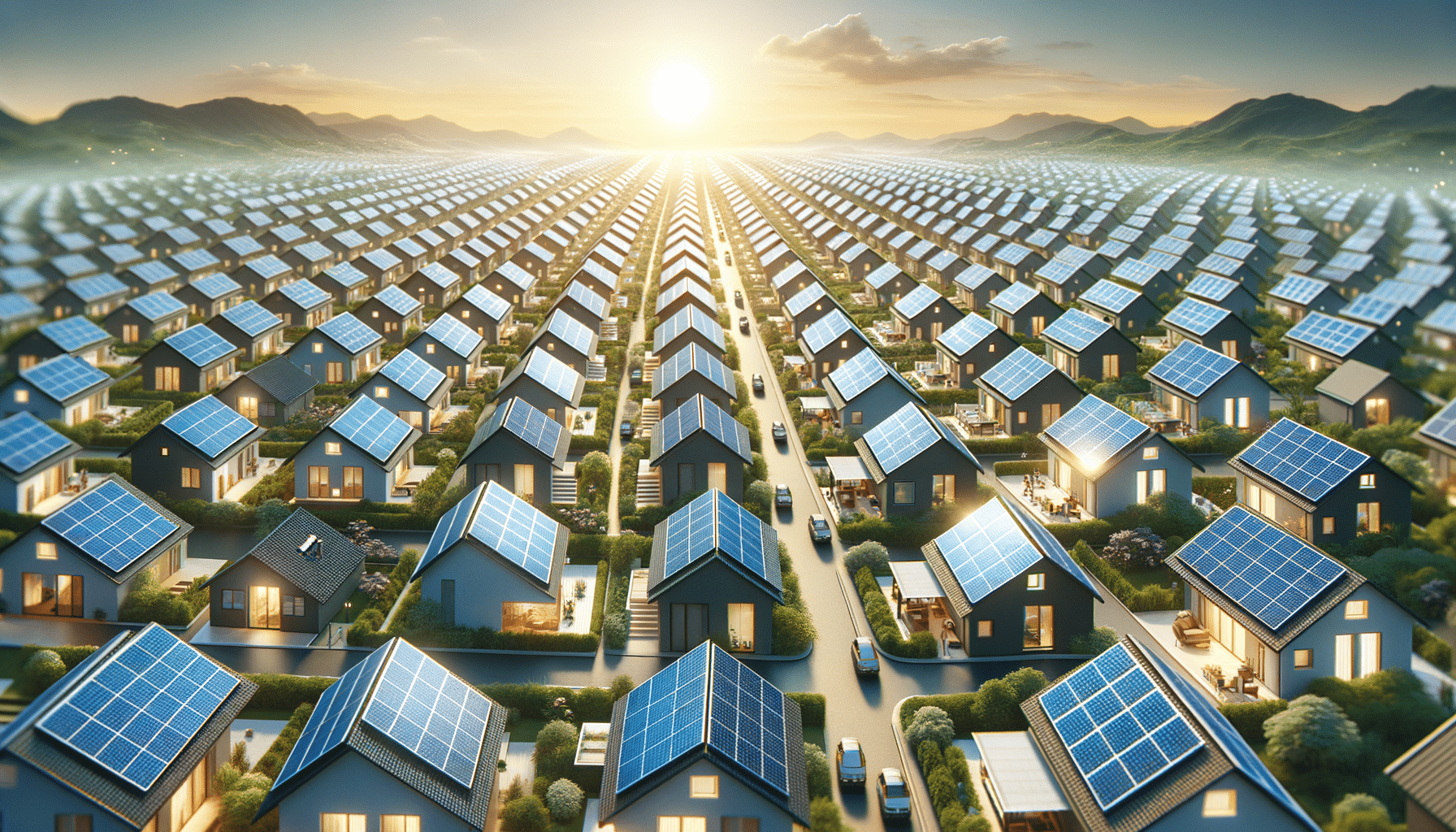
Solar Generators Being Added to Homes
Introduction to Solar Generators
In a world increasingly conscious of environmental impacts and energy efficiency, solar generators have emerged as a viable solution for sustainable power needs. These devices harness the energy of the sun to provide electricity, making them an eco-friendly alternative to traditional fuel-powered generators. Solar generators are not only beneficial for reducing carbon footprints but also offer a reliable backup power source during emergencies or for off-grid living. Their portability and ease of use make them an attractive option for a variety of applications, from camping trips to home energy resilience.
How Solar Generators Work
Solar generators operate by converting sunlight into electrical energy. They consist of several key components: solar panels, a battery storage system, an inverter, and a charge controller. The solar panels capture sunlight and convert it into direct current (DC) electricity. This electricity is then stored in the battery for later use. The inverter plays a crucial role by converting the stored DC electricity into alternating current (AC), which is the type of electricity used by most household appliances and devices. The charge controller ensures that the battery is charged efficiently and prevents overcharging, which can damage the battery.
One of the main advantages of solar generators is their ability to function independently of the grid. This makes them ideal for remote locations where traditional power sources may be unavailable. Additionally, they operate quietly and do not produce harmful emissions, making them suitable for use in populated areas and sensitive environments.
Applications and Benefits of Solar Generators
Solar generators offer a wide range of applications, making them a versatile choice for various needs. One of their most popular uses is in outdoor activities such as camping and hiking. Their portability allows users to carry them easily, providing a reliable source of power for charging devices, lighting, and even small appliances.
In emergency situations, solar generators serve as a dependable backup power source. They can keep essential devices running during power outages, ensuring that communication and critical appliances remain operational. This is particularly valuable in areas prone to natural disasters where power interruptions are common.
For homeowners looking to reduce their reliance on the grid, solar generators can supplement existing solar panel systems. They provide additional storage capacity, allowing for greater energy independence. Furthermore, using solar generators can lead to cost savings over time, as they reduce the need for traditional electricity and lower utility bills.
Comparing Solar Generators to Traditional Generators
When evaluating solar generators against traditional fuel-powered generators, several factors come into play. Solar generators have the distinct advantage of being environmentally friendly. They do not emit greenhouse gases or other pollutants, making them a cleaner option for power generation.
Traditional generators, on the other hand, rely on fossil fuels such as gasoline or diesel. This not only contributes to environmental pollution but also incurs ongoing fuel costs. Solar generators, once purchased, have minimal operational costs as they utilize free solar energy.
Another consideration is noise. Solar generators operate silently, which is a significant benefit in residential areas or during camping trips. Traditional generators can be quite noisy, which may not be suitable for all settings.
However, it is important to note that solar generators may have limitations in terms of power output compared to some traditional generators. They are best suited for low to moderate power needs and may not be able to support heavy-duty equipment or appliances that require a large amount of energy.
Choosing the Right Solar Generator for Your Needs
Selecting the appropriate solar generator involves assessing your specific power requirements and usage scenarios. Consider the following factors:
- Power Capacity: Determine the total wattage needed to power your devices and appliances. This will help you choose a generator with sufficient capacity.
- Battery Storage: Evaluate the storage capacity of the battery to ensure it can store enough energy for your needs, especially during extended periods without sunlight.
- Portability: If you plan to use the generator for outdoor activities, consider its size and weight for ease of transport.
- Durability: Look for models with robust construction that can withstand various weather conditions and rough handling.
By carefully considering these aspects, you can select a solar generator that aligns with your energy goals and lifestyle, providing a sustainable and reliable power solution.


